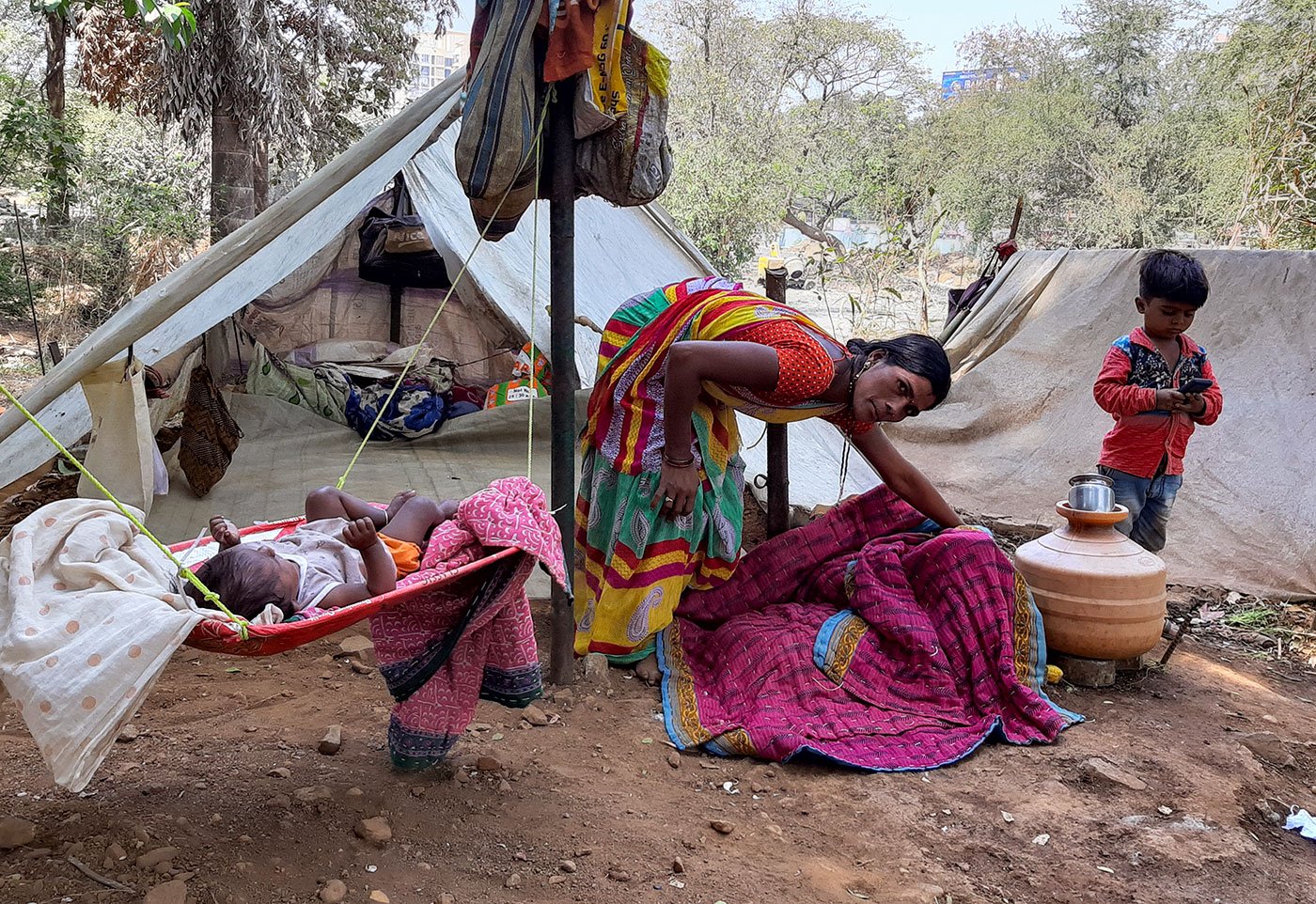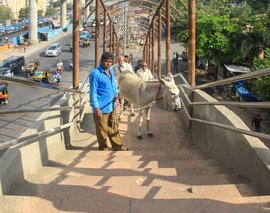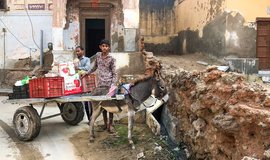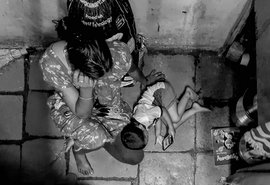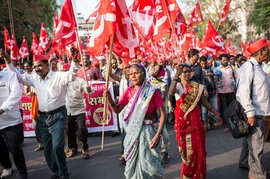Maya Mohite is looking after three-month-old Sheetal while the baby’s mother, Pooja, is at work not far from their tents. The two cloth-and-tarpaulin tents are their ‘homes’ in Sanjay Gandhi National Park. Maya is sitting on an outcrop of rocks washing utensils with water filled from a stream in the park, while the baby sleeps in her cradle – an old polythene cement bag layered with a red cover.
“Work is on to make a car park here,” says Maya. The parking zone is being constructed at the entrance to the park in Borivali East in Mumbai. Maya came to the city in December 2018 along with seven other members of her family; among them is Pooja, her sister-in-law. Some of them came here from a construction site in Khopoli, around 70 kilometres from Mumbai, a few in the family group came to Borivali after completing work at sites in Rajasthan.
During the monsoon months every year, the Mohites return to their village, Harpala, in Jafferabad taluka of Jalna district. The family belongs to the Beldar community (listed as a Nomadic Tribe in some states). Maya’s parents and her three brothers work at construction sites too in and around Harpala, or they work as agricultural labourers. “I was very young when I got married. At that time I used to work in the fields,” Maya, now 25 years old, says.
For long, Maya’s parents in-law worked on construction sites too, in Mumbai and in other parts of Maharashtra. “Then they bought around an acre in the village and moved back,” says Mukesh Mohite, her brother-in-law. For a few years they tried to work only as agricultural labourers, but with the daily wages for that work unchanged at around Rs. 150-200, the family decided to return to construction sites, where daily wages can go up to Rs. 400-500, Mukesh says.
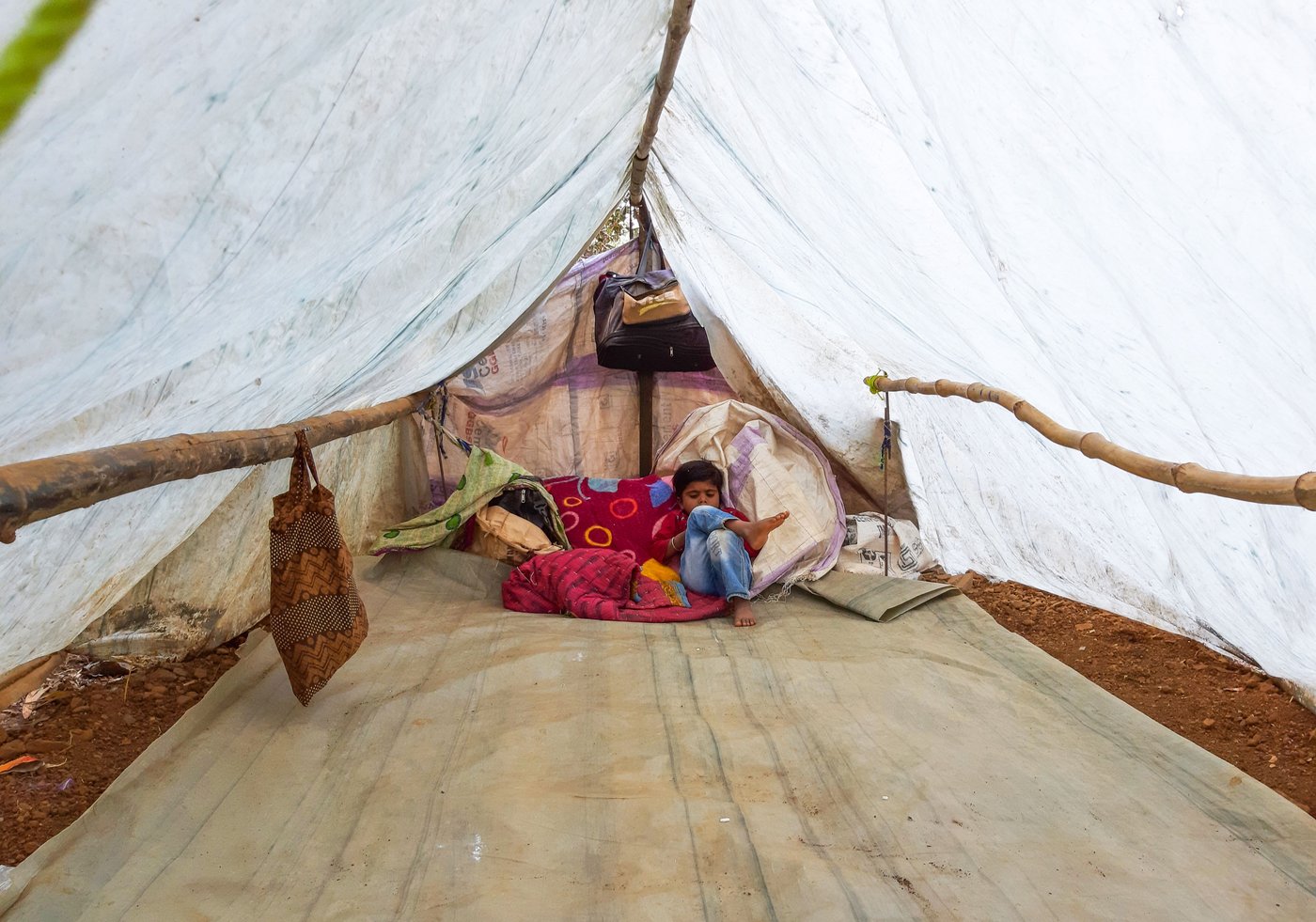
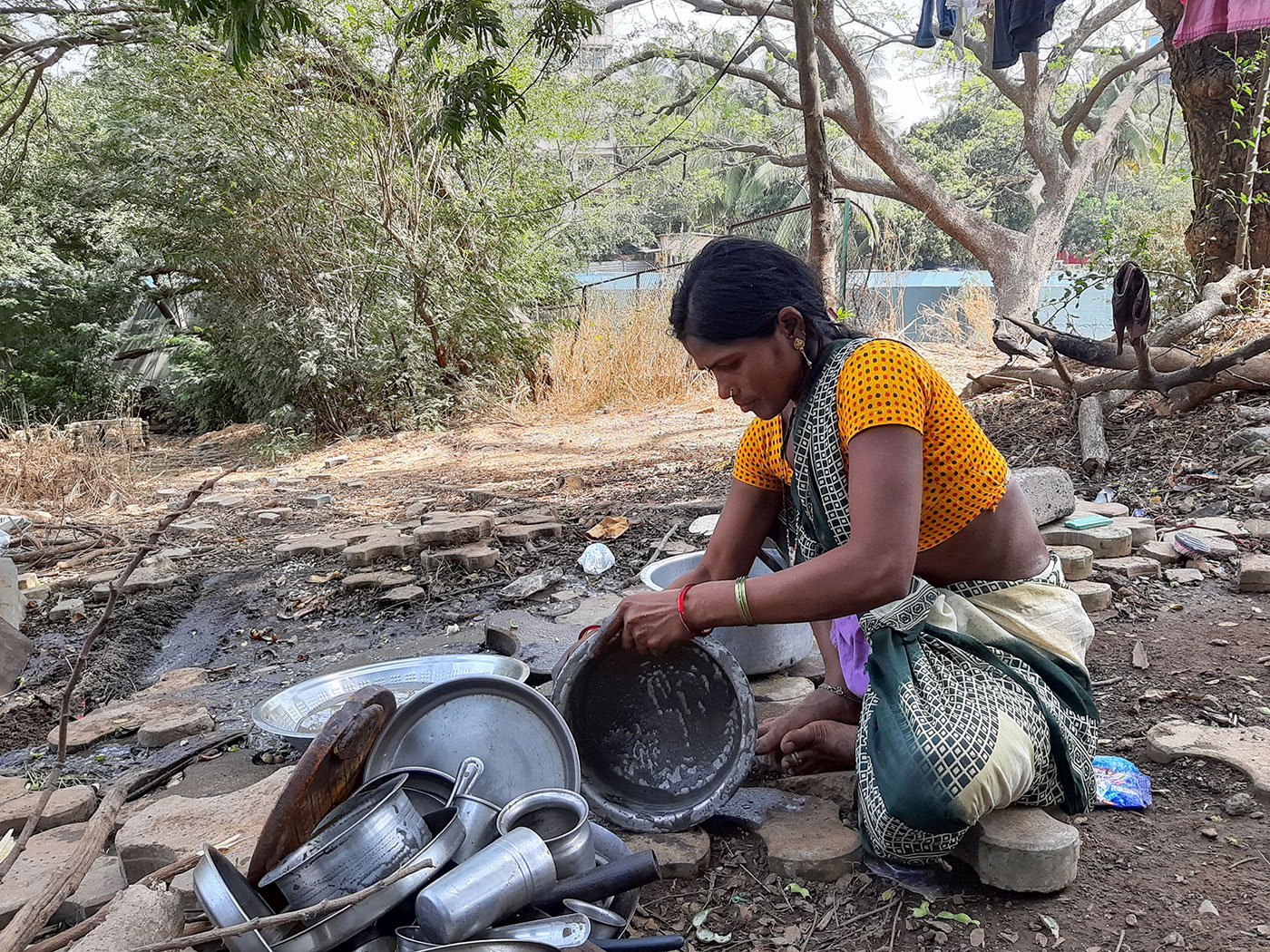
Left: Maya's five-year-old son Avinash in their tent at Sanjay Gandhi National Park in Mumbai. Right: Maya Mohite washing utensils near their 'home'
The family travels to different states, depending on the work assigned to them by contractors. “We have worked in Maharashtra, Andhra Pradesh, Delhi. Our contractor tells us 'come here, go there',” says Maya. During the monsoon, the Mohites work as agricultural labourers or at construction work in or around Harpala village.
“We have taken Rs. 20,000 as advance [from the contractor],” says Maya. Some of this was used to set up the tents. For weekly expenses the family of 10 camping at the national park in Mumbai (including Avinash, Maya’s son and Sheetal, the baby) get Rs. 5,000-10,000 from the contractor, depending on the week’s need and negotiations. “Every Sunday I go to buy rations; the rest [of the weekly amount] is sent to my mother-in-law,” Maya says. These weekly payments will later get deducted from the amount given to them at the end of this assignment.
Everyone in the family is up at 7:00 a.m. to start work and they usually stop by 6:30-7:00 in the evening. Maya and the two other women in the group of 10 (Pooja and Lakshmi, a relative who is with them) are relieved to have access to a toilet in Sanjay Gandhi National Park. In other places, Maya says, “There is nothing for a long stretch, and we have to wait.”
The work hours depend on the tasks assigned by the contractor. Sunday is the weekly off. Tulsidas Bhatia, the main contractor for this project, says “Every worker is in a different category. Some earn Rs. 200 while others make Rs. 2,000 per day.” Ask him who gets Rs. 2,000 a day and he replies – those who are “hard working.” Sub-contractors who work with Bhatia bring labourers – like the Mohite family – from different states to various construction sites.
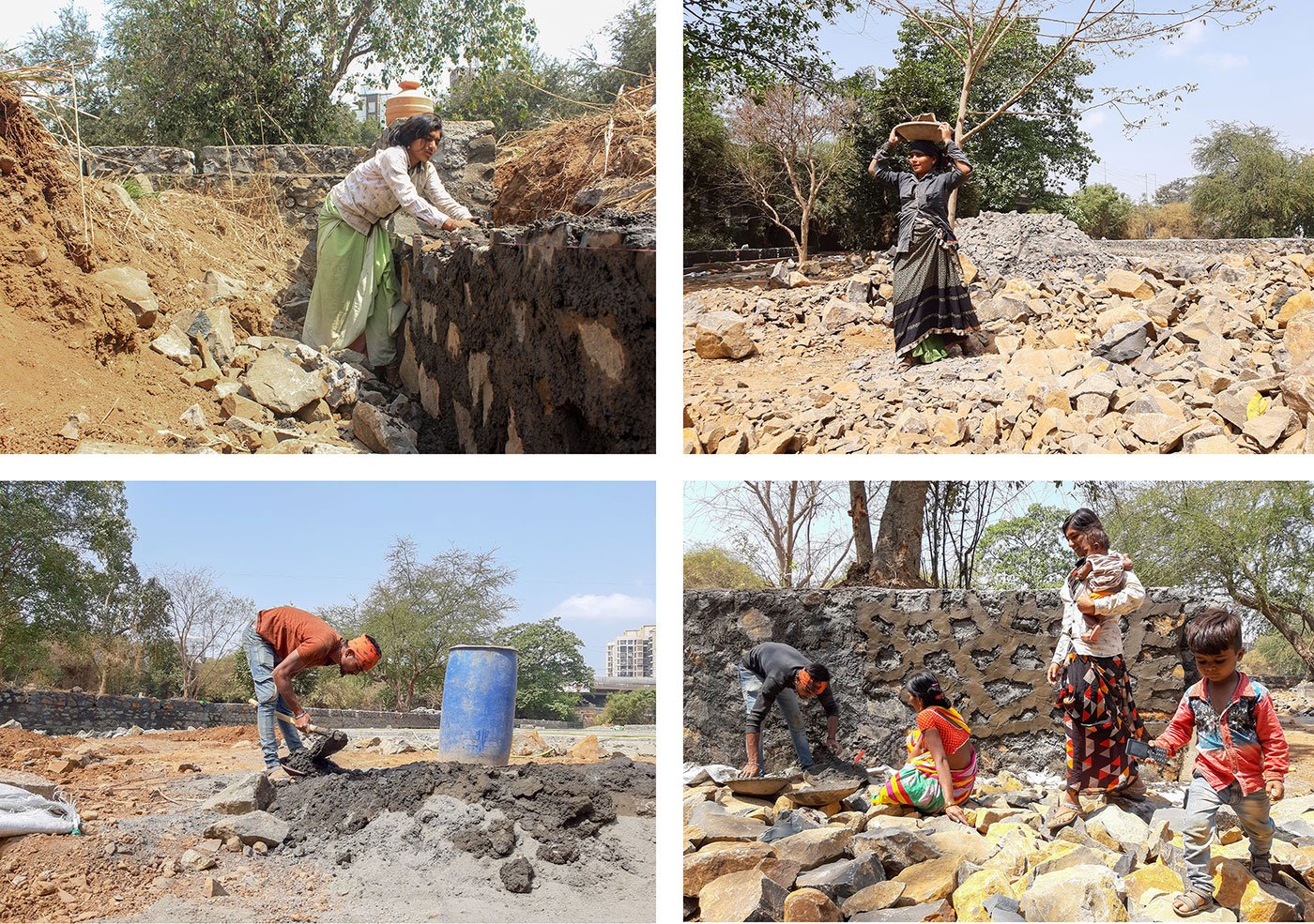
Living and working at the park: Pooja (top left); Lakshmi (top right); Mukesh (bottom left); Mukesh, Maya, Pooja, her daughter Sheetal, and Maya's son Avinash (bottom right)
No one in her family has a bank account, says Maya, except her father-in-law in Harpala. They send their earnings, whatever is left after expenses, to him “We don’t keep money in the bank, for that there should be some money to put in the bank!” Mukesh says. He gets Rs. 200 a week from his elder brother Rajesh, if needed. Ask him for what and he shyly says, “Sometimes for tobacco and the rest for recharging my phone.”
Now the baby has started to cry, she is hungry. Maya takes her to Pooja, who is applying cement on the walls near the parking lot. “Her papa and the rest of the family had not seen her because they were working. Everyone was calling to see her. She was just one month old when she came here,” Pooja says. She married Rajesh Mohite two years ago when she was 16 (she estimates), and since then has been working on construction sites too.
A small boy comes towards the tent holding a phone. He is Maya’s five-year-old son Avinash. Her two daughters, Poonam, 9, and Vaishali, 7, stay in village with her parents in-law. Maya says she does not want any more children: “After he was born I did my operation, five years ago.” Her husband Uraj left her a year ago to, she believes, live with another woman. She wants to educate her daughters till at least Class 12, then arrange for their marriages. But she hopes to educate her son further and doesn’t want him to work with his uncles.
Maya usually goes to nearby markets in Borivali to buy vegetables and supplies for the family. But a big occasion is coming up, and soon the shopping will be be for more than just the weekly necessities. Mukesh is getting married. “I am happy,” Maya says. ‘[It’s a time when] everyone sings and laughs together.”
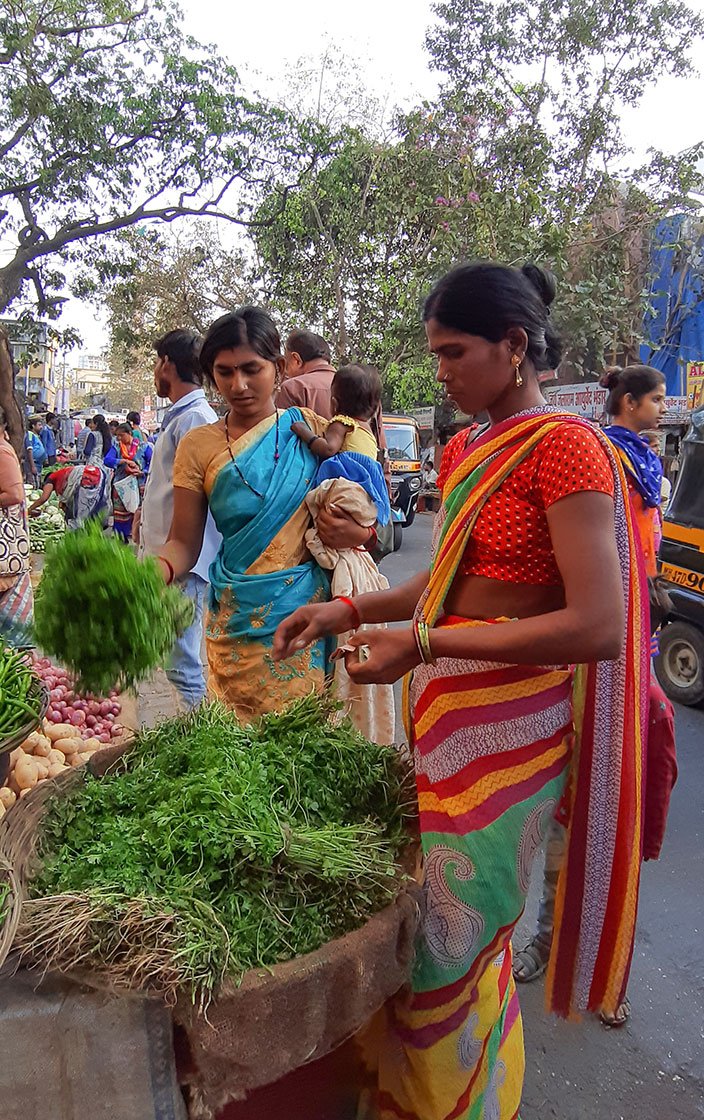
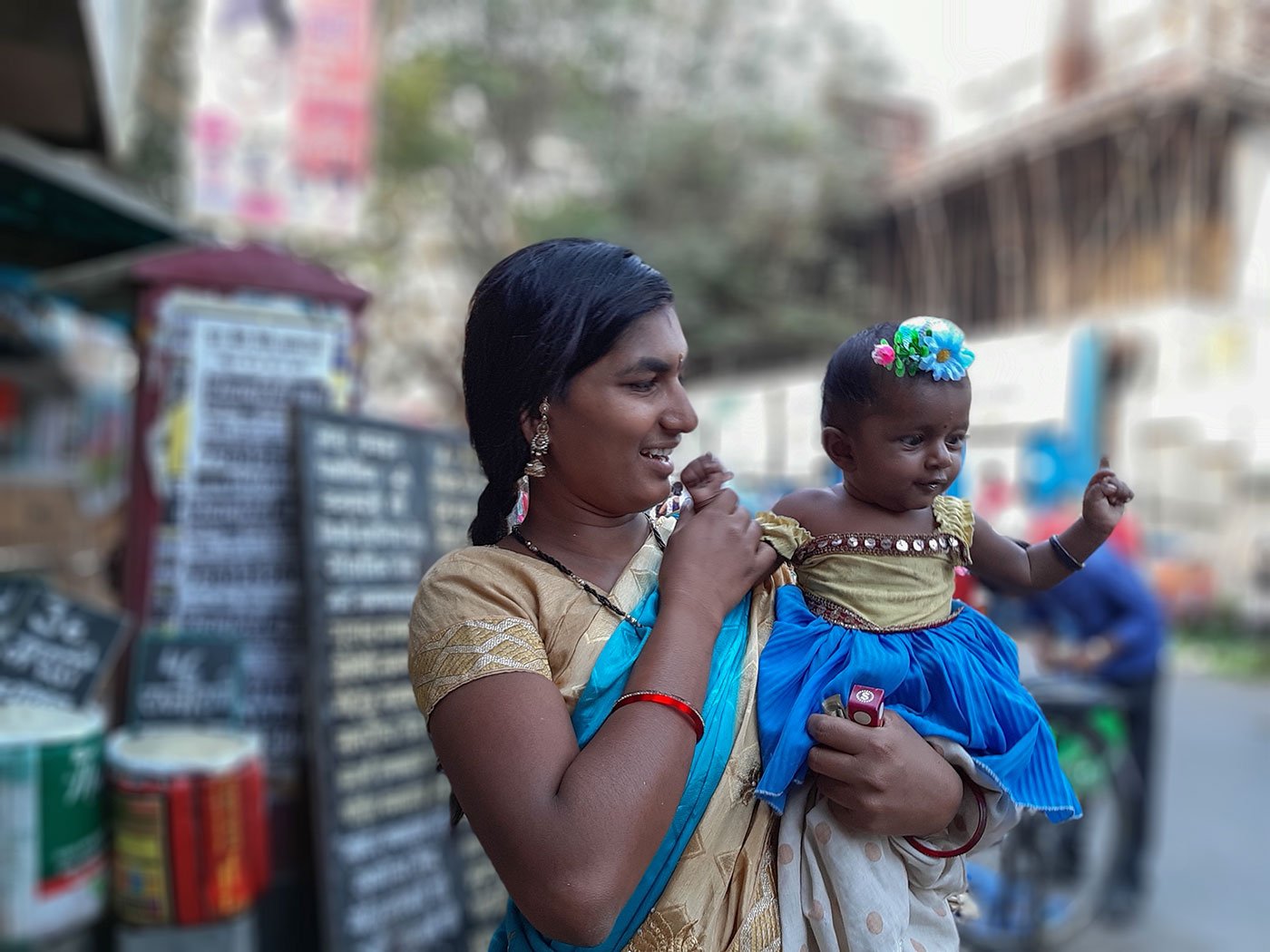
Left: Maya and Pooja get the family's weekly rations and vegetables at the market in Borivali. Right: Pooja just bought Sheetal a blue clip to match with her frock
At the end of the three-month work period in Mumbai, Maya and her family
received Rs. 40,000 after all the deductions. After adding in the advance and
the weekly payments, this comes to around Rs. 160,000 for eight adult workers
for around 90 days of work – or around Rs. 225 a day per person.
Towards the end of March, after completing work at the national park construction site, some of the Mohite family members went to the village, and a few went to Khopoli to try to earn some more before the wedding.
Soon after the wedding the entire group had planned to leave for work again with a new family member – Mukesh’s wife Rupali. If she doesn’t work with him, Mukesh says, “What will she eat then?” And now, when the rains come, they will return to Harpala to work in the fields.
